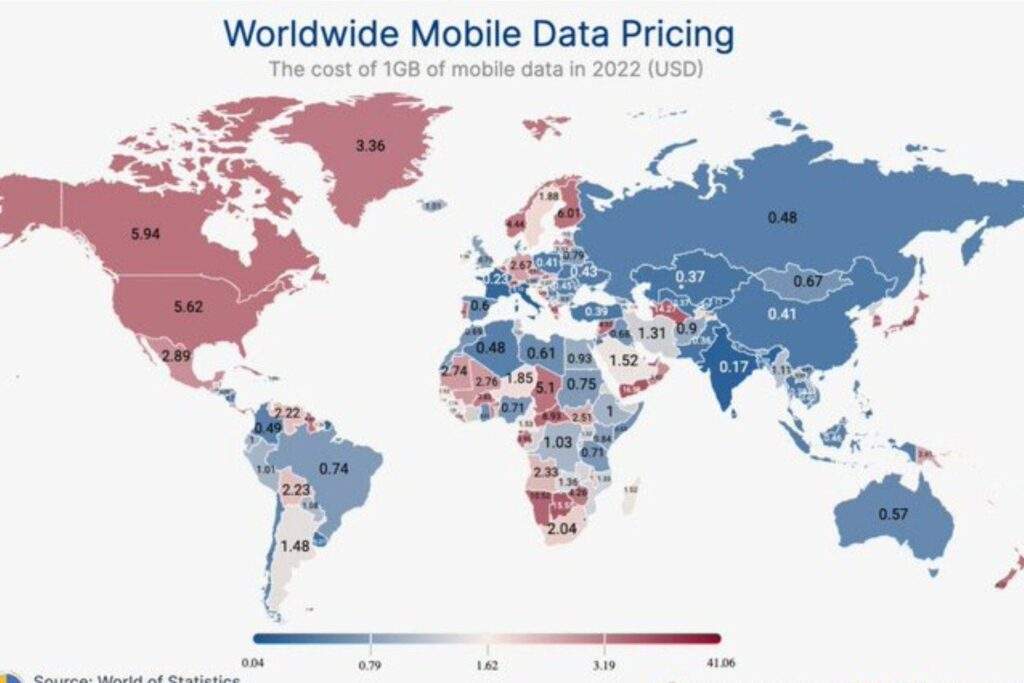The cost of 1GB mobile data in Nigeria is among the lowest worldwide, according to a report by the World of Statistics. On Thursday, the data body disclosed that the average data price in Nigeria is $0.71 (N327.10). The report compared the cost of 1GB of mobile data in 39 countries, including Italy, India, South Africa, and the United States.
Of the countries listed in the report, Israel had the lowest average data cost of $0.04 per 1GB, followed by Italy at $0.12 per 1GB. On the other hand, the average cost of data in South Korea was the highest, with $12.55 per 1GB, followed by Switzerland at $7.37 per 1GB.
Here is a detailed list of countries and their ranking with the cost of data: Israel: $0.04, Italy: $0.12, India: $0.17, France: $0.23, Uruguay: $0.27, Bangladesh: $0.32, Pakistan: $0.36, Turkey: $0.39, China: $0.41, Denmark: $0.43, Malaysia: $0.45, Indonesia: $0.46, Russia: $0.48, Columbia: $0.49, Australia: $0.57, Spain: $0.60, Nigeria: $0.71 Brazil: $0.74 UK: $0.79 Austria: $0.94 Iceland: $1.01 Estonia: $1.20, Argentina: $1.48, Saudi Arabia: $1.52, Sweden: $1.88, Netherlands: $1.90, South Africa: $2.04, Venezuela: $2.22, Germany: $2.67, Mexico: $2.89, Portugal: $3.67, Japan: $3.85, Norway: $4.44, USA: $5.62, Canada: $5.94, Finland: $6.01, Switzerland: $7.37, South Korea: $12.55, Falkland Islands: $38.45.
The revelation that Nigeria has one of the lowest data prices in the world is an encouraging development for Nigeria’s telecommunications sector. With the country’s population of over 210 million people, this could be a significant boost for the growth of the sector and the economy as a whole.
While the statistics show low data prices, consumers still face issues such as poor network connectivity, slow internet speeds, and stunted digital infrastructure. As such, though the cost of data may be low, a majority of Nigeria’s population still has limited or no access to the internet.
In conclusion, the low cost of data in Nigeria is a positive development, and more needs to be done to improve internet infrastructure and connectivity across the country so that more people can take advantage of the opportunities presented by the digital age.
